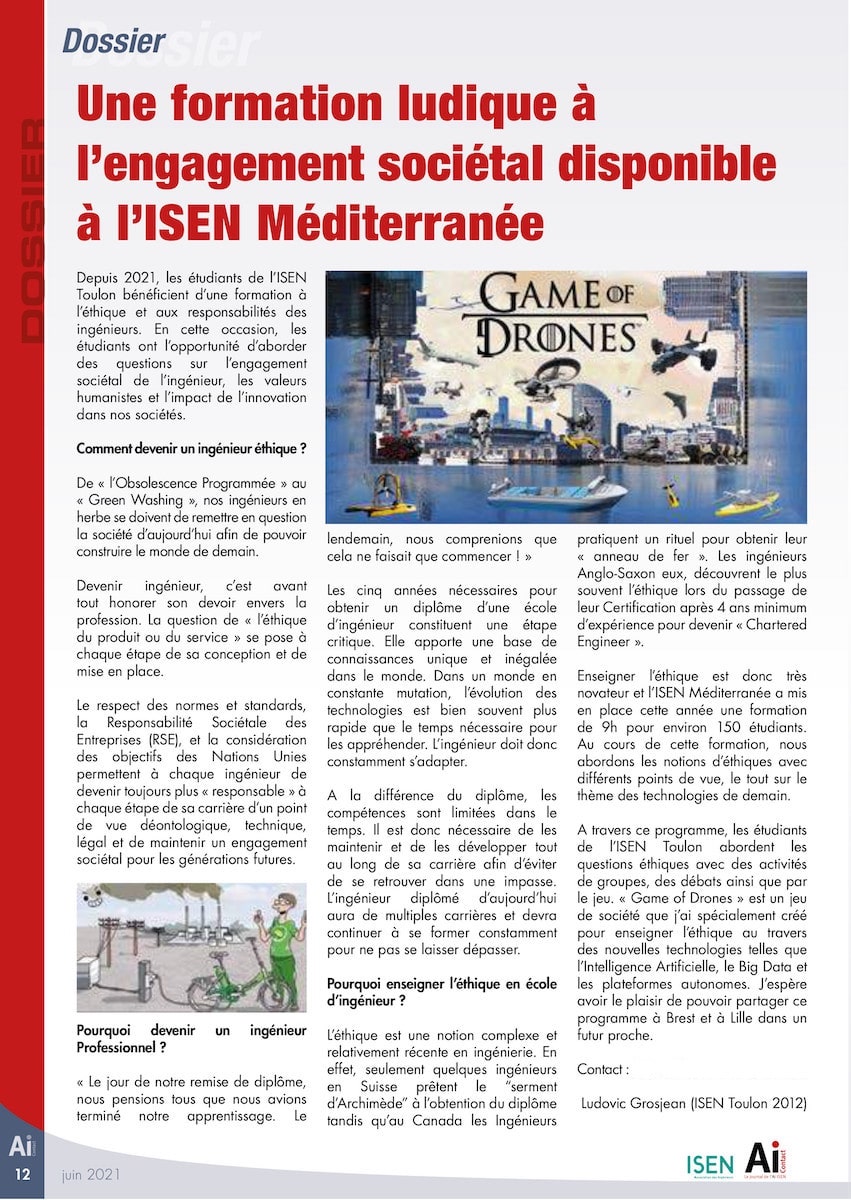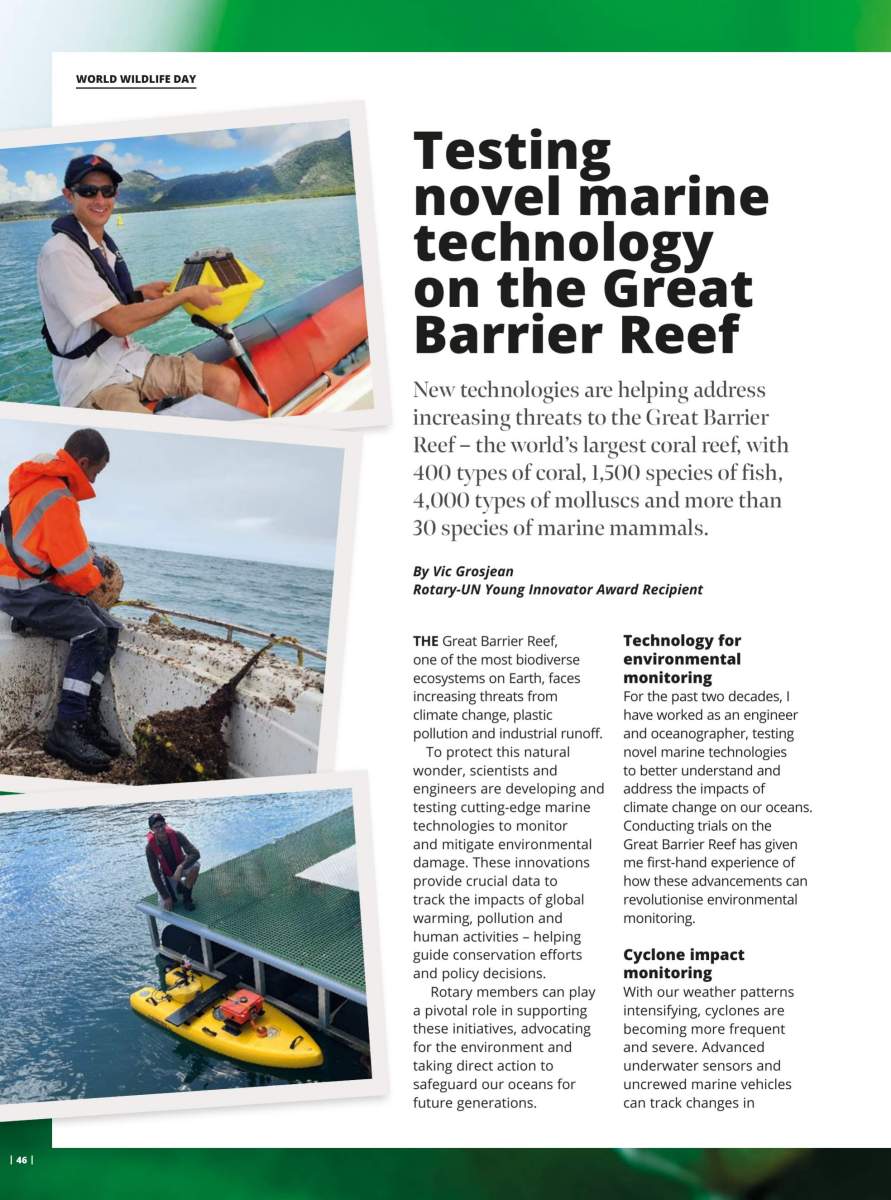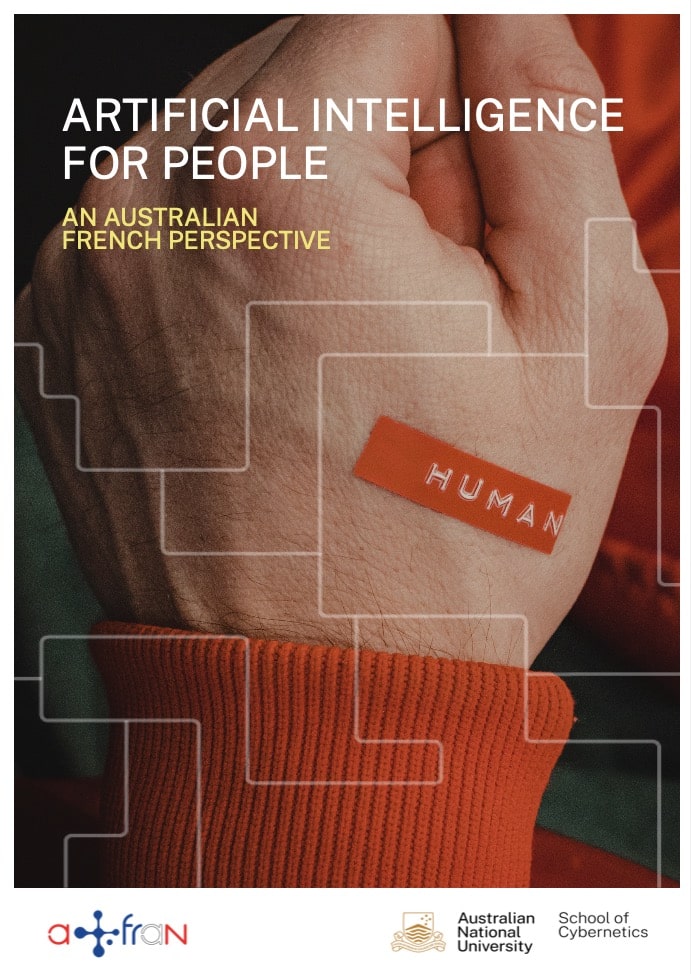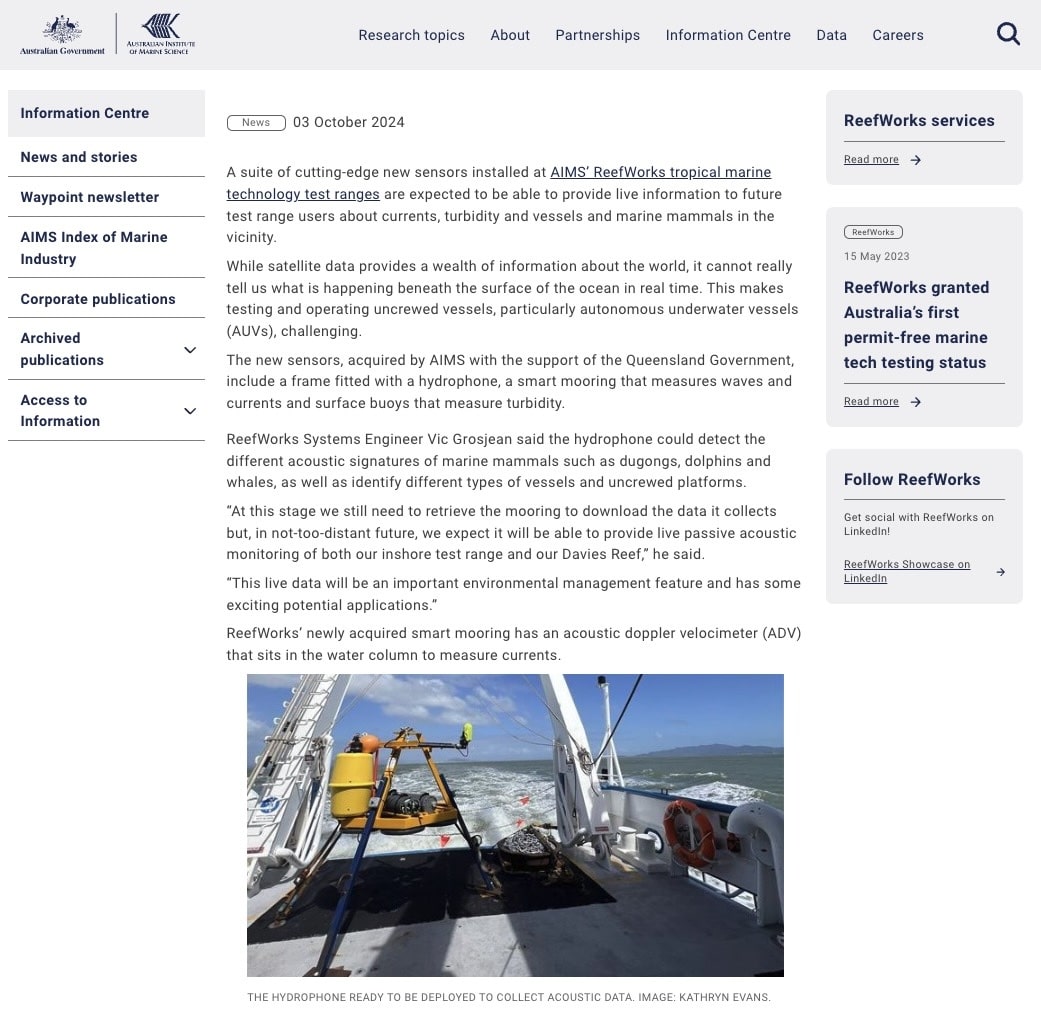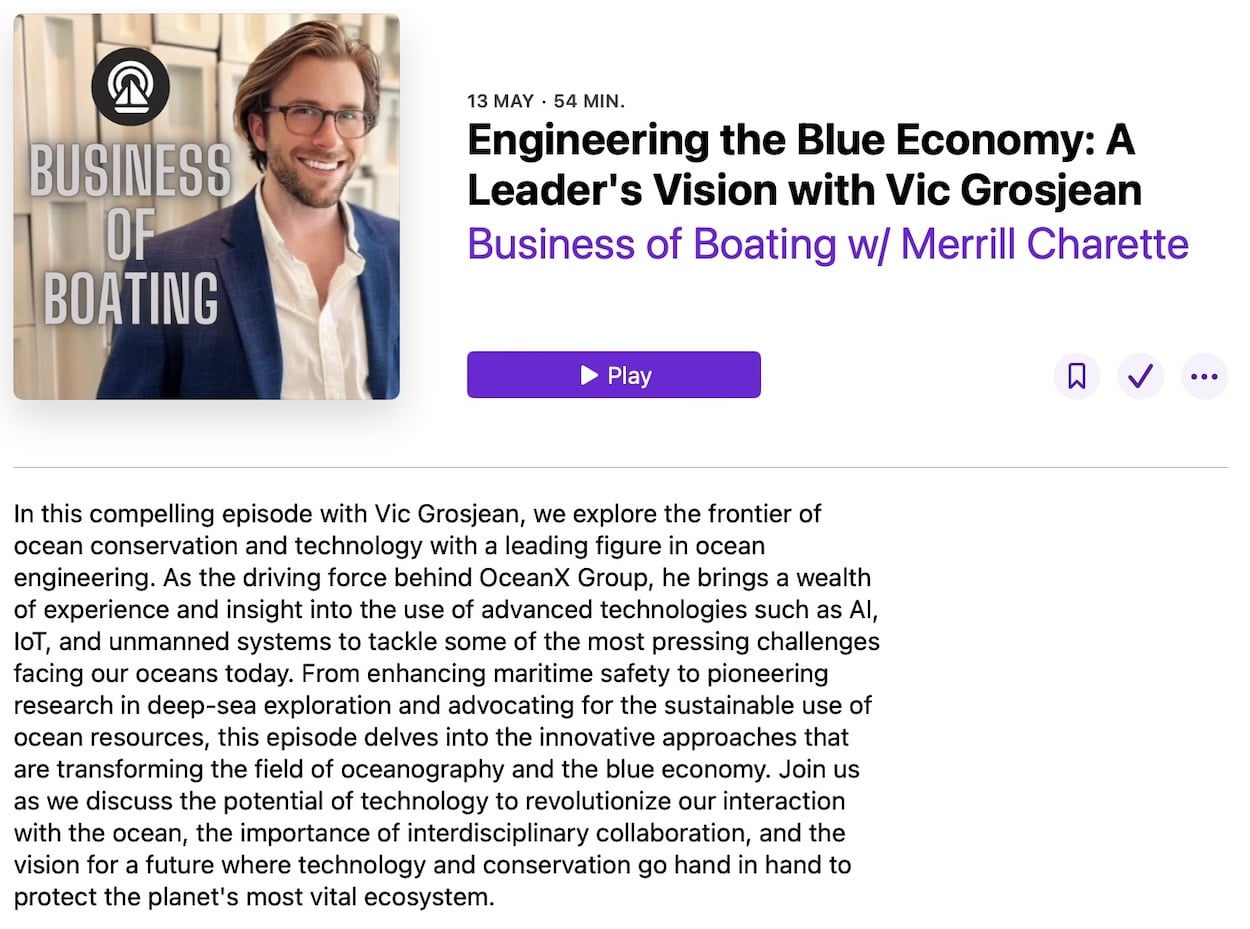| FOR IMMEDIATE RELEASE |
8, June 2021 – Teaching Engineering Ethics & Corporate Social Responsibility.
Vic Grosjean providing interactive Ethics classes to Engineering students.
In 2021, all students from the highest Institute for Digital Engineering (ISEN) will follow training in Engineering ethics and learn about Engineering responsibility. This opportunity will help students learn about the impact of Engineering on society, our humanist values, and the impact of innovation on our society.
How to become an ethical engineer?
From “Planned Obsolescence” to “Green Washing”, our budding engineers need to challenge today’s society so that they can build the world of tomorrow.
Becoming an engineer means above all honoring your duty to the profession. The question of “product or service ethics” arises at every stage of its design and implementation.
Respect for norms and standards, Social Responsibility of Companies (CSR), and the consideration of the objectives of the United Nations allow each engineer to become ever more “responsible” at each stage of his career from an ethical, technical, legal point of view and to maintain a societal commitment for futures generations.
Why become a professional Engineer?
“On our graduation day, we all thought we had completed our apprenticeship. The next day, we understood that it had only just begun! ”
The five years it takes to graduate from engineering school is a critical step. It brings a unique and unequaled knowledge base in the world. In a constantly changing world, the evolution of technologies is often faster than the time required for them.
apprehend. The engineer must therefore constantly adapt.
Unlike the diploma, skills are limited in time. It is, therefore, necessary to maintain and develop them throughout one’s career in order to avoid ending up at a dead end. Today’s graduate engineers will have multiple careers and will need to continue training constantly so as not to be overwhelmed.

Why teach ethics in engineering school?
Ethics is a complex and relatively recent concept in engineering. Indeed, only a few engineers in Switzerland take the Archimedes Oath upon graduation while
in Canada Engineers perform a ritual to obtain their “iron ring”. Anglo-Saxon engineers most often discover ethics when passing their Certification after a minimum of 4 years of experience to become a “Chartered Engineer”.
Teaching ethics is therefore very innovative and ISEN Méditerranée has set up a 9-hour training course this year for around 150 students. During this training, we approach ethical concepts from different points of view all on the topic of tomorrow’s technologies.
Through this program, the students of ISEN Toulon and ISEN Nîmes, tackle ethical questions with group activities, debates as well as games. “Game of Drones” is a board game that I have specially created to teach ethics through new technologies such as Artificial Intelligence, Big Data, and autonomous platforms. I hope to have the pleasure of being able to share this program in Brest and Lille in the near future.
Read more:
- ‘Teaching Engineering Ethics & Corporate Social Responsibility’, Issue 38, 8 June 2021, by Vic Grosjean, on ‘AI Contact’.
Join the conversation and help us clean our oceans!
